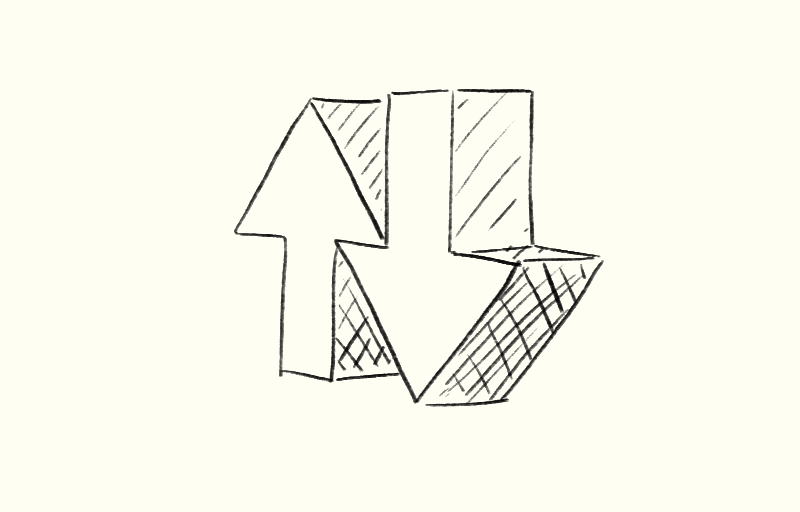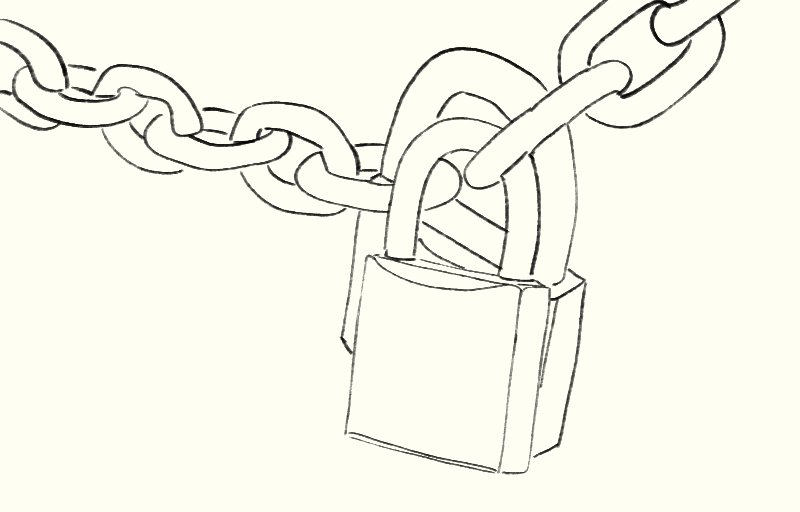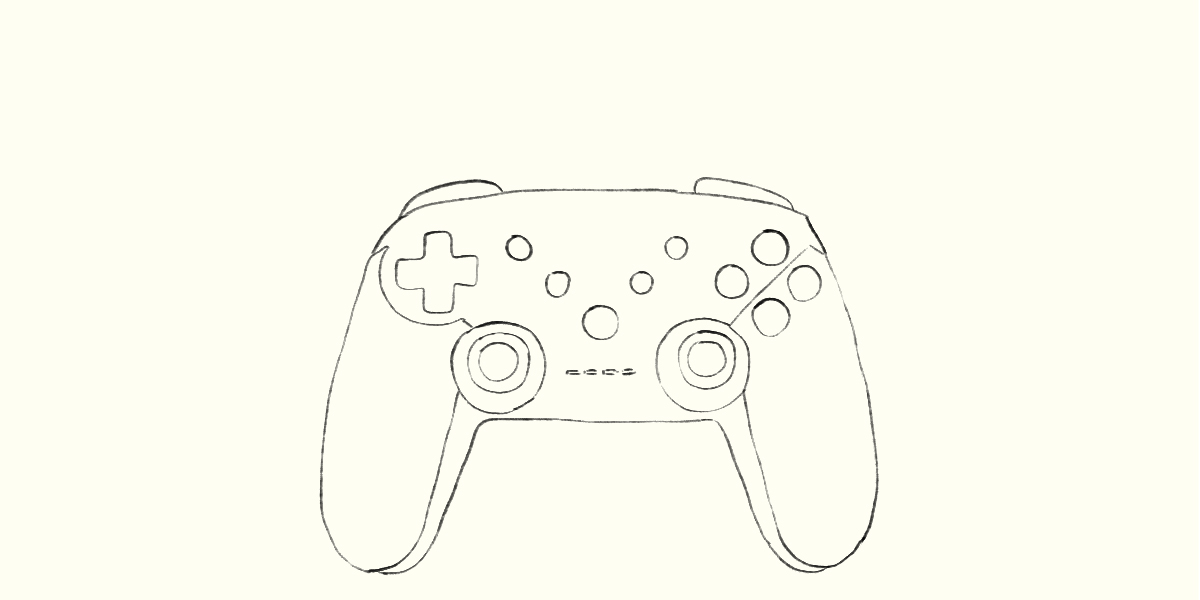In this article, I will share about how I quit playing games.
I used to play games for 1 to 5 hours a day, but now I don’t play at all.
Quitting the game greatly changes our lives. Because I experienced the following changes when I quit gaming.
- Increased sleep duration
- More time for studying
- Pursued challenges I had always wanted to tackle (blogging, YouTube)
- Increased frequency of engaging in sports
- More instances of cooking my own meals
As you can see, the benefits of quitting gaming are substantial. However, quitting gaming is not easy due to its high addictive nature.
Therefore, in this article, I will introduce methods I discovered through trial and error, ensuring that the content includes only highly reproducible methods that others can emulate.
Why I Quit Playing Games

The reason I felt compelled to quit gaming was to allocate more time for studying.
Currently, I’m studying abroad in Australia with the aim of delving into three fields: English, Marketing, and Design.
The duration of my study abroad program spans three years, during which I am determined to study diligently.
However, I found myself neglecting serious study efforts.
Because I was spending too much time playing smartphone games, particularly a card game called Yu-Gi-Oh!
Back home, I used to play this game with friends using physical cards. However, I don’t have those friends in Australia.
Consequently, I turned to the online version of the game, unaware of the regret that would follow.
After downloading the game, I found myself playing for 1 to 2 hours daily, sometimes even up to 5 hours.
Although I occasionally felt remorse for playing too much, I made excuses, justifying gaming as necessary relaxation time.
It wasn’t until about a year into my study abroad experience that I started feeling a sense of urgency. I realized my English proficiency wasn’t progressing as anticipated. Despite being in Australia for a year, there were still moments in class when I couldn’t comprehend what the teacher was saying. Moreover, when I tried to articulate my thoughts, I struggled to find the right words.I knew if I continued down this path, I would return home without mastering English.
It was this sense of urgency that prompted me to make the decision to quit gaming.
The way others quit playing games didn’t work out for me

I first looked into ways to quit gaming when I felt the desire to do so. I researched various opinions, particularly from YouTube and blogs.
Everyone seemed to say the same thing: “Delete your game data right away. Doing so will kill your desire to play.”
But I couldn’t agree with this idea.
Deleting game data seemed like a significant hurdle. It required a strong resolve to erase all the effort I’d put in.
Moreover, this method didn’t provide a fundamental solution. Even if I quit one game by deleting its data, the same cycle would await if I started a new game.
So, I went through a process of introspection and decided to quit gaming on my own terms.
How I Quit Playing Games
I adopted a soft approach of gradually distancing myself from gaming. So, I didn’t take drastic actions like deleting game data. Frankly, I couldn’t bring myself to do such a bold move…
Now, let me explain the specific methods I took.
Listing Reasons to Quit Gaming

First, I wrote down the reasons why I wanted to quit gaming. I wanted to calmly assess how harmful gaming was for me. Actually, this action was beneficial in strengthening my determination.
Here are the actual notes I made:
Reasons I Want to Quit Gaming:
- Gaming consumes a lot of time. Spending 1 to 5 hours on gaming every day is ridiculous. I want to allocate this time to my other hobbies or spending time with my family.
- Gaming depletes my finances. I spend around $10 to $20 per month on in-game purchases. If I save this money, I could buy a new pair of sneakers in a year.
- Gaming kills my motivation for other activities. Playing games excessively tires me out, and I lose motivation for other activities. I start feeling indifferent even towards important things like studying English.
- Gaming late into the night leads to sleep deprivation. Playing games until late at night results in sleep deprivation the next day. Also, if I play games right before bed, I end up thinking about the game in bed and can’t sleep well.
- My career is stagnant. Spending time on games prevents me from taking actions to expand my career opportunities. Starting a blog or YouTube channel would provide me with opportunities to apply the marketing skills I’ve learned. However, I spend all my time gaming and don’t engage in meaningful activities.
I encourage everyone to list out their reasons because doing so can strengthen your determination. When you feel like resuming gaming, the reasons you listed will come to mind.
Increasing the Effort Required to Play Games

I increased the effort required to play games. Increasing effort is an effective method when quitting bad habits. (I’ve also discussed how to quit bad habits in another article on habit formation.)
I made it a habit to uninstall the game app every time I finished playing. Waiting for the game to download again before playing made me question what I was doing. As a result, the frequency of my gaming naturally decreased.
However, if you’re playing console games like PlayStation or Xbox, you’ll need a different approach. In that case, I think it’s good to increase the effort by storing the gaming console in a less accessible place.
Finding Alternative Actions

Increasing the effort required before playing a game reduces the frequency of gaming. However, there are still times when you want to play games.
In my case, I feel like playing games when I want to relax. Specifically, after coming home from school, I feel like playing games.
After using a lot of concentration at school, I want to give my mind a break. So, I used to play games for 1 to 2 hours after school.
The solution to this is to prepare alternative actions. Find alternative activities that satisfy you other than gaming.
In my case, I started reading magazines. Magazines are easy to read and enjoyable, so they serve as a good mood booster.
Any action other than gaming is acceptable as an alternative. However, it’s desirable that it’s not social media because it’s difficult to exercise self-control when using social media.
Keeping Records

There were times when I couldn’t help but play games because I was tired or stressed. In such cases, it’s important to analyze the reasons.
Usually, it’s because I’m tired from lack of sleep or I’m bothered by something someone said.
If you understand the reasons, you can take countermeasures. However, if you don’t know the reasons, you’ll end up playing games with a vague sense of frustration.
To prevent this, ideally, you should keep records every day. I wrote in a diary and observed my mental state. (please refer to another article for how I write my diary.)
Eliminating Triggers

Even if you think you’ve quit gaming, you might unexpectedly resume gaming, so you need to be careful. That’s because external factors might make you want to resume gaming. There are two measures to take:
Block game-related information
Game companies regularly run campaigns. For example, they may distribute powerful characters or weapons for free or allow free spins on gacha. I’ve resumed gaming a few times when such campaigns were held. If you truly want to quit gaming, you should block such information. Block websites and YouTube channels that you frequently visit.
Declare to your gaming buddies that you’re quitting gaming
If you have gaming buddies, they’ll invite you to play games. To eliminate such invitations, you should inform your gaming buddies that you’re quitting gaming.
There’s a possibility that you might lose friends by quitting gaming. However, that’s the price you have to pay if you want to quit gaming.
True friends will remain your friends even if they don’t play games. If someone stops being your friend because you quit gaming, they weren’t really your friend.
They like the game, not you.
Finding Hobbies or Activities to Replace Gaming

This is the final step. Find hobbies or activities to replace gaming. If you find one, you’ll fundamentally solve the problem, and you won’t spend any more time on gaming.
However, finding a hobby you can be passionate about isn’t something that happens immediately. So, let’s explore patiently without rushing.
It took me about half a year to find the next hobby.
In my case, I resumed table tennis, which I hadn’t played for over 10 years. Also, the blog I’m currently writing is one of my new hobbies. And in the future, I’ll launch a YouTube channel with my wife.
You don’t have to stick to hobbies. Activities like spending time with family or friends also enrich our lives.
This is a part where individual differences come into play, so I encourage you to try various things.
That’s the approach I took. Since I didn’t take the bold action of deleting game data, I think it’s an easy method to implement.
However, the weakness of the method I took is that even if I quit once, I might resume gaming. In fact, I resumed gaming about three times.
However, if you persist with your approach without giving up, you will definitely be able to quit gaming. So, try it without worrying too much.
You will definitely reclaim your time from gaming and your life.
Thank you for reading until the end.
If you have any questions, please feel free to contact me through the social media links below.
I also make vlogs, so I’d be happy if you could check them out!
Sayonara





